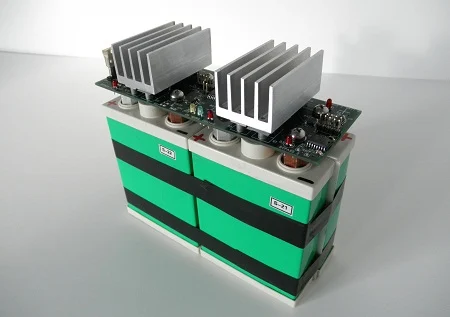You think Lafayette College, you think East Coast liberal arts school. You think long discussions of the Hegelian system, and the allusions in Eliot’s “The Waste Land.”
But there’s an engineering side to the school, as well, and in recent years the Department of Electrical and Computer Engineering has made sustainable energy technology a big part of the curriculum. In fact, the Easton, Penn., college just graduated six engineering students who worked diligently during their senior year pushing the envelope on battery technology.

Over the course of the academic year, the students added a new feature to the college’s Photovoltaic Research and Development System, a solar-panel array on the roof of the Acopian Engineering Center that uses a supervisory control and data-gathering system to send power to buildings around the campus.
Their new feature, a cell management system, allows the charging and discharging of lithium iron phosphate (LiFePO4) cells to be performed on a cell-by-cell basis, which maximizes the battery’s capacity and increases its life. On the marketing end, this means the battery is cheaper and more efficient.
The research performed in Lafayette’s labs could have a lasting impact on the solar-power system at the college, but its impact on the students might be even greater. According to Lafayette, Erik Adolfsson was able to enter his first job as a technical sales associate with Texas Instruments with a wide range of skills he learned by being a part of Lafayette’s research.
“I have learned about scheduling tasks, delegating work, and how difficult it is to design a system from the ground up,” Adolfsson said.
“This project has definitely given me a better understanding of how projects are developed and some of the unique challenges of working with a team of engineers.”
Students outside the core six who worked directly on the project also benefited – like chemical engineering major Robert Lovelett, also of the class of 2011, who collaborated on the chemical aspects of multi-physics LiFePO4 cell modeling and analysis.
Lovelett plans to pursue a Ph.D., focusing on energy research or a related field like fuel cells or biofuels.






